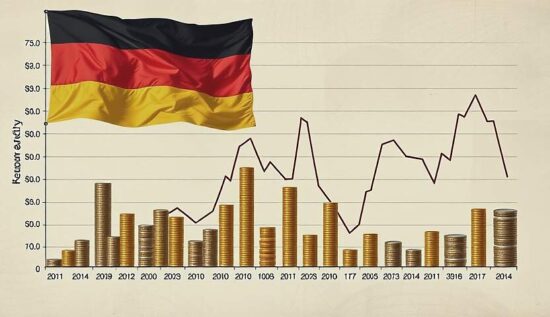A recent report by the German Federal Bank revealed that the wealth of private households in Germany has reached a record high, with a total of over 9 trillion euros in assets. The Bundesbank’s data showed a 197 billion euro increase in the third quarter of 2024 compared to the previous quarter.
The overall return on investment, adjusted for inflation, stood at 3%, with a remaining net worth of 6.85 trillion euros after subtracting liabilities of 2.154 trillion euros. This figure includes cash, bonds, stocks, investment fund shares, and insurance policies.
However, a crucial piece of information is often overlooked in these reports, despite the Bundesbank’s mention of it. In reality, the wealthiest 10% of households hold more than 70% of the net wealth, while the less affluent half of the population has less than 1% of the total wealth.
In other words, half the population has little to no savings, and the next 40% can only enjoy a quarter of the total wealth. The FAZ was the only newspaper to pick up on these data, but it framed them as a criticism, stating that “half the population has not saved anything.”
This might be the result of a lack of opportunities rather than a lack of will. The extreme distribution of wealth also highlights the significant changes that have taken place over the past few decades. In 1998, the lower half of the population in West Germany still held 4.6% of the wealth, while the next 40% had 53.5%, and the top 10% held 41.9%. By 2007, the top 10% had increased their share to 61.1%, while the next 40% had only 38.9%. Since then, the wealth of the lower half of the population has fluctuated between zero and 1%, and the share of the next 40% has halved.
It is not the Germans who can jubilate over the rising wealth, but rather the successful expropriation of an ever-growing portion of the population to the benefit of a small minority.





